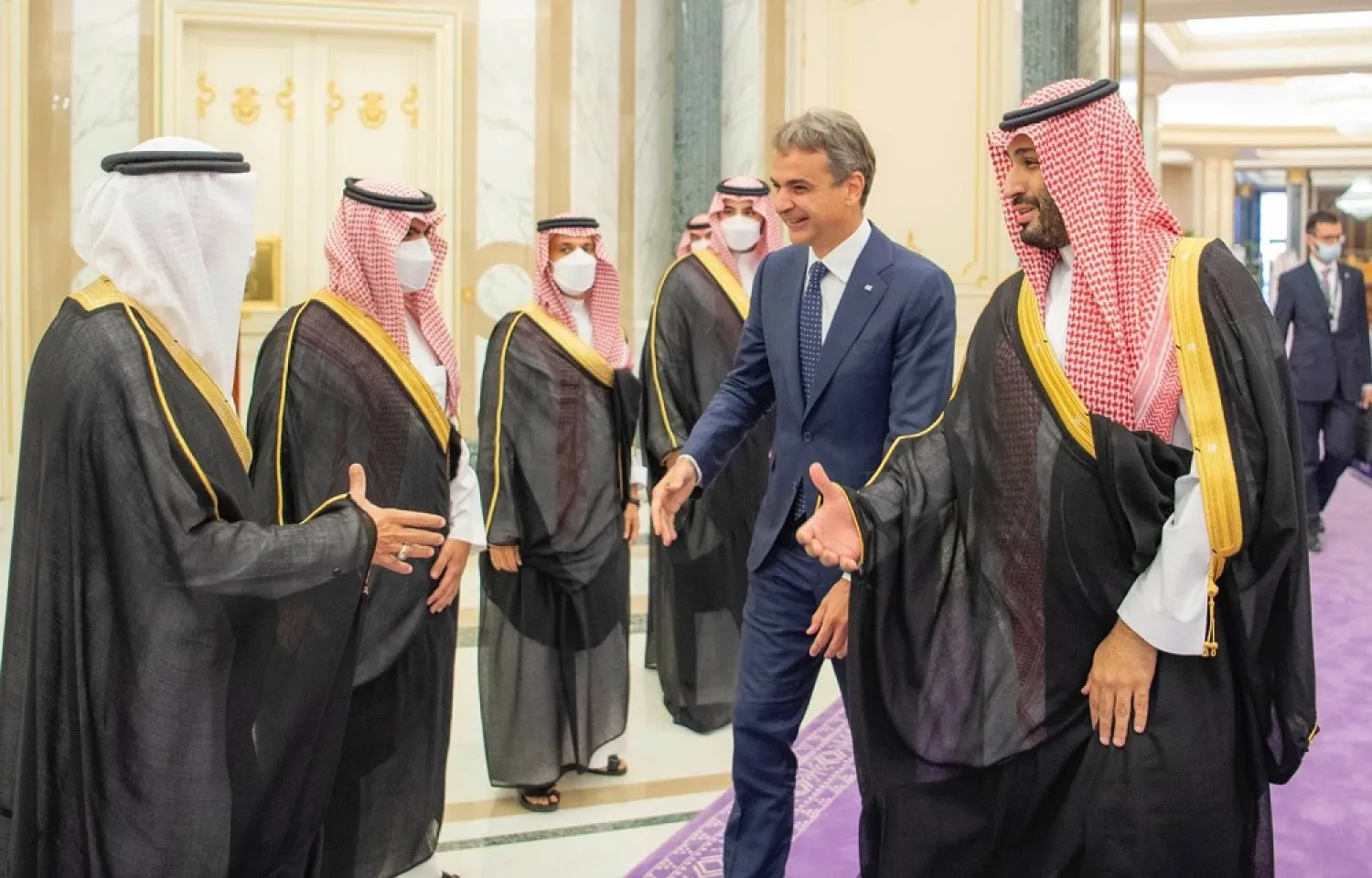Greek Prime Minister Kyriakos Mitsotakis stressed that his country’s relations with Saudi Arabia and the Gulf were strategic, pointing to common geopolitical challenges.
He emphasized that his government’s foreign policy priority was to establish solid ties with the Gulf, saying: “We have now entered into a strong strategic relationship, as we share many common economic and social factors.”
Mitsotakis’ remarks came during a dialogue session on Tuesday at the Future Investment Initiative forum, in the presence of Saudi Crown Prince Mohammed bin Salman, and Crown Prince of Bahrain Sheikh Salman bin Hamad Al Khalifa.
The premier touched on the agreements signed by his country with France and the United States, as well as efforts to provide oil and gas to Europe through Greece.
Moreover, he also stressed that Cyprus’ alliance with Egypt and Israel does not pose a threat to Turkey, saying: “We have security and there are no threats in the eastern Mediterranean. We have alliances and we are joining alliances clearly, and I hope at some point Turkey will have a positive engagement with us.”
“All outstanding problems with Egypt and Italy have been resolved in accordance with international law… We are open to dialogue and will not compromise our interests,” he added.
Abdullah Al-Sawaha, Saudi Minister of Communications and Information Technology, said the Kingdom has made great strides towards digital and knowledge economy, especially during its presidency of the G20.
“We are turning to digital transformation in order to protect the planet and empower people. We are working with global innovators and taking advantage of satellite images and artificial intelligence to reduce carbon emissions and preserve the environment,” the minister said during Tuesday’s session.
Nadhmi Al-Nasr, CEO of NEOM, said that the giant project, launched by the Saudi Crown Prince in 2016, was rolling at a fast pace.
“There was a vision for NEOM, and the mission was clear to turn the dream into a reality. We took over the task and then continued the journey to introduce NEOM in different ways. NEOM is basically found to be an independent economy that will rely on 16 sectors, and will have its own laws and legislation,” he said.
Al-Nasr added that nine years were left to translate the NEOM project into reality. This is a task that requires great efforts, as he described it.
“One day we will surprise the world with happy news that NEOM is operating faster than we expected,” he remarked.









